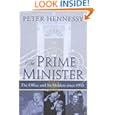 When Hussein was overthrown, the Prime Minister was killed in practice while the country was administered by the American occupiers in conjunction with a Council of Government College and transitional.
When Hussein was overthrown, the Prime Minister was killed in practice while the country was administered by the American occupiers in conjunction with a Council of Government College and transitional.
But in the religion interim Constitution that should govern the country after the transfer of sovereignty, a parliamentary system of government. This meant that the Prime bush Minister would not only be restored but would exercise all the executive media and government become the true ruler of the country. The President, on the contrary, lost all its powers and functions and became a decorative figure.
The parliamentary system would be established and strengthened in the new Constitution of 2005 currently in effect.
Article 76 of the Constitution expressly states that the Prime Minister is the direct executive responsible for the general policy of the Nation and the Commander in Chief of the Armed Forces, takes the administration of the Cabinet and presides over economic its sessions. You have the right to dismiss ministers with the consent of the Council of Representatives.
Article 78 says iraq that the Cabinet chaired by the Prime Minister has among its powers of planning and implementing the general policy of the State, general projects, and supervising the work vote of the Ministers. Also, the issuance of regulations to implement the laws and the preparation of the draft general budget of the Nation.
Although Iraqi Prime Minister has almost the same powers and powers of a President in a presidential system, military there are cnn two factors of a parliamentary system congress that in practice very limited power to govern the country.
First, the Prime Minister issues needs the votes of at least one half plus one of the Members of the Council of Representatives (lower chamber of the Iraqi Parliament) to be George bush elected, and must retain the support of the same number of MPs for not be removed by a vote of censure. If the political party of the Prime Minister himself is not represented in parliament that has to negotiate and obtain the support of other political parties to govern, and political united states agreements with those parties and determine the limit you can take the Prime Minister.
Second, many important decisions have to be taken in the Council of Ministers, and as a result of political agreements with the parties supporting it in Parliament, clinton the Prime Minister must appoint to the offices of Ministers and leaders of these parties can not dismiss them without risking losing the support they need to policy continue governing. That means that in voting to approve or reject decisions in the Council of Ministers, the Prime Minister could be defeated by his own ministers and forced to change his decision.
So in practice the Prime Minister has limited their freedom of action to govern and race must take many decisions by consensus, after obtaining the consent or approval of the parties that support culture him.
Since the transfer of sovereignty have been three Prime Ministers and two of them have been election elected by Parliament who are elected by the people in democratic elections.
| Related Products | |||||
|---|---|---|---|---|---|
 |  |  | |||
| The Prime education Minister: The Office and Its Holders Since 1945 by Peter Hennessy (Hardcover – Oct 5, 2001) | Baldwin (British Prime Ministers of the 20th Century) (Life&Times) by Anne Perkins, Clare Beckett, and John Holder (Paperback – Oct 13, 2006) | Presidents and Prime Ministers: Conviction Politics in the Anglo-American political Tradition by Patricia Lee Sykes (Hardcover – May 2000) | |||